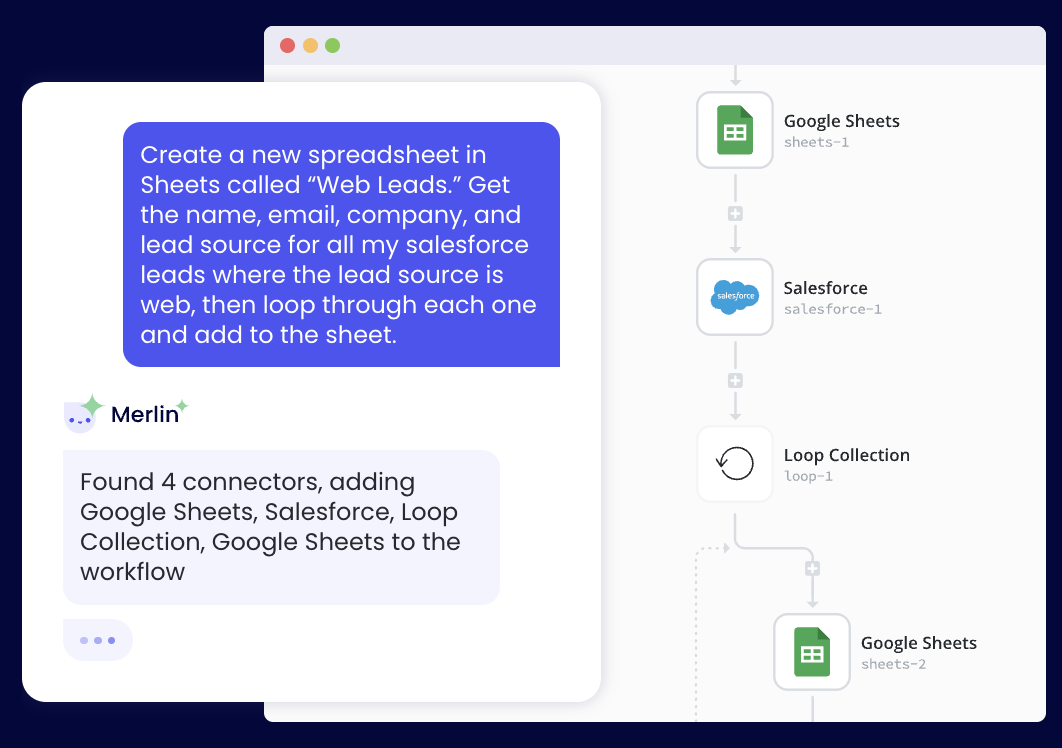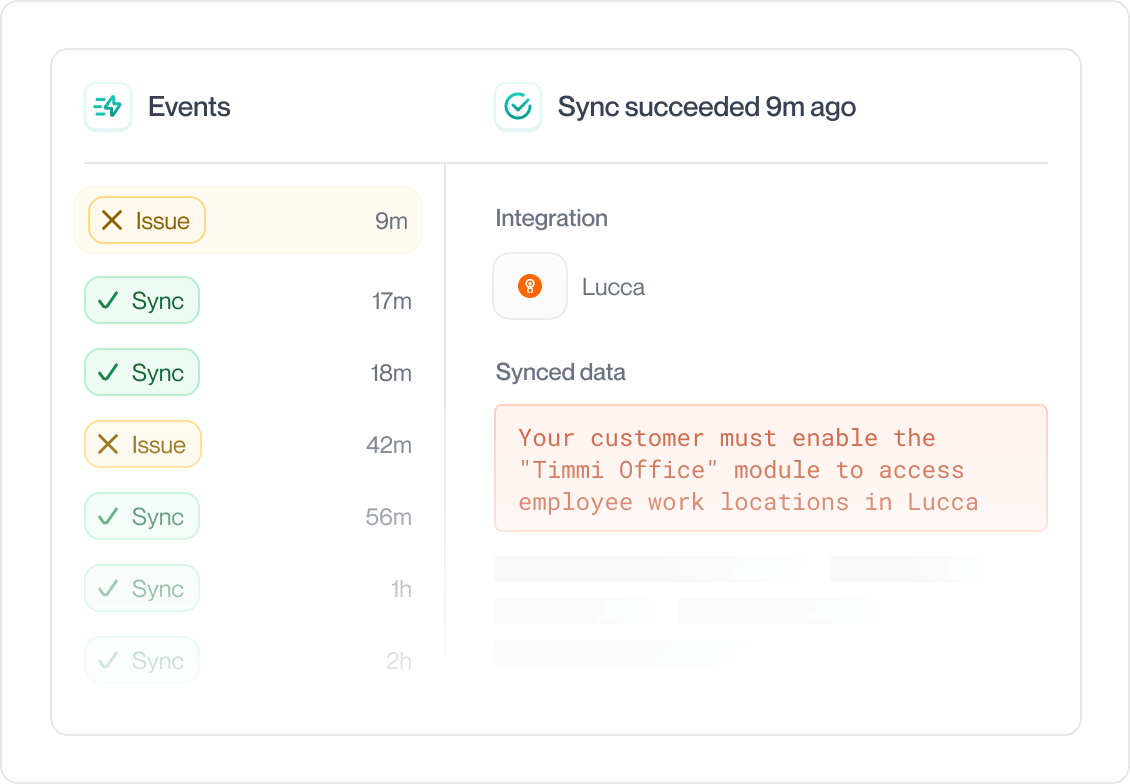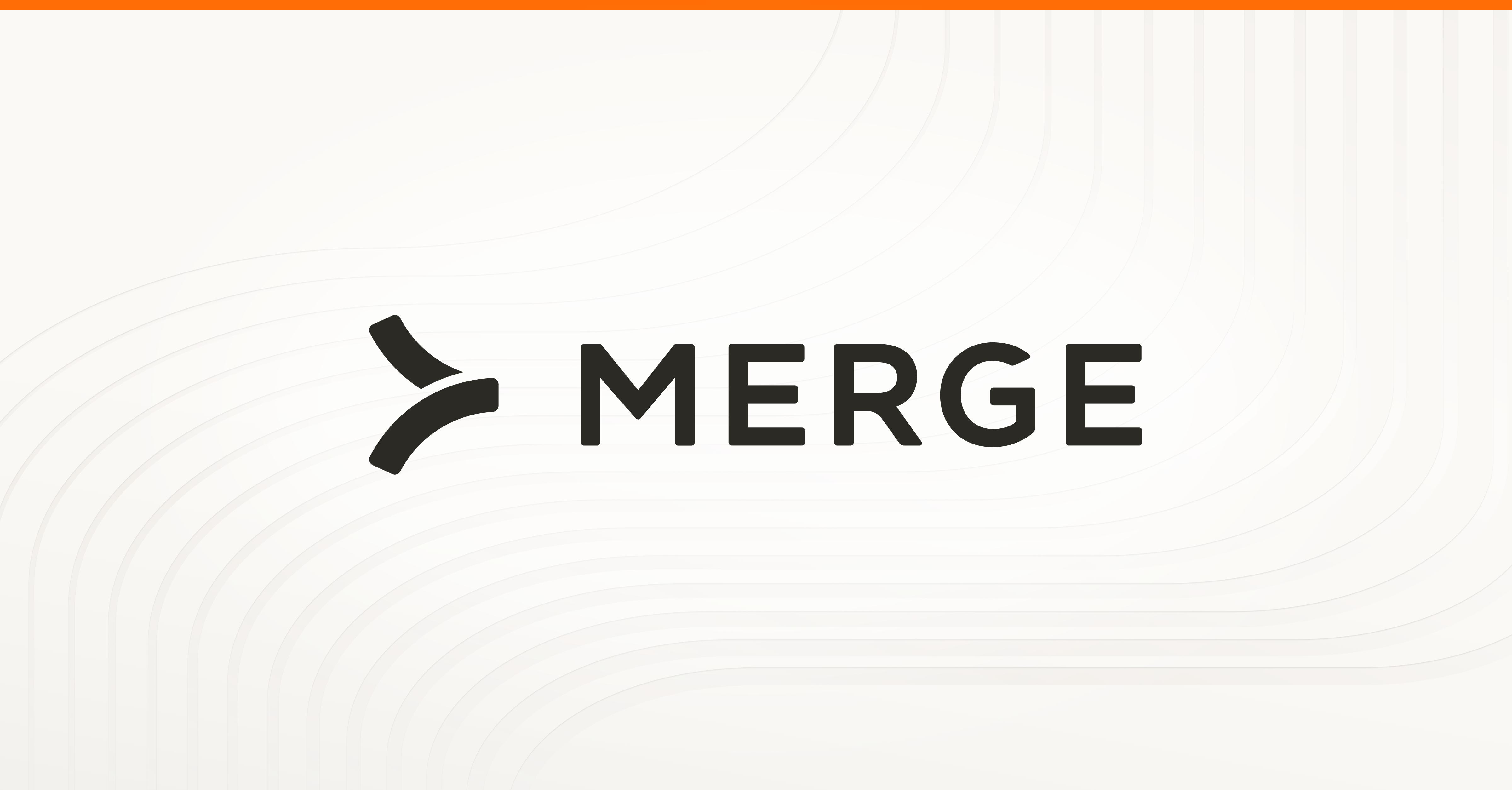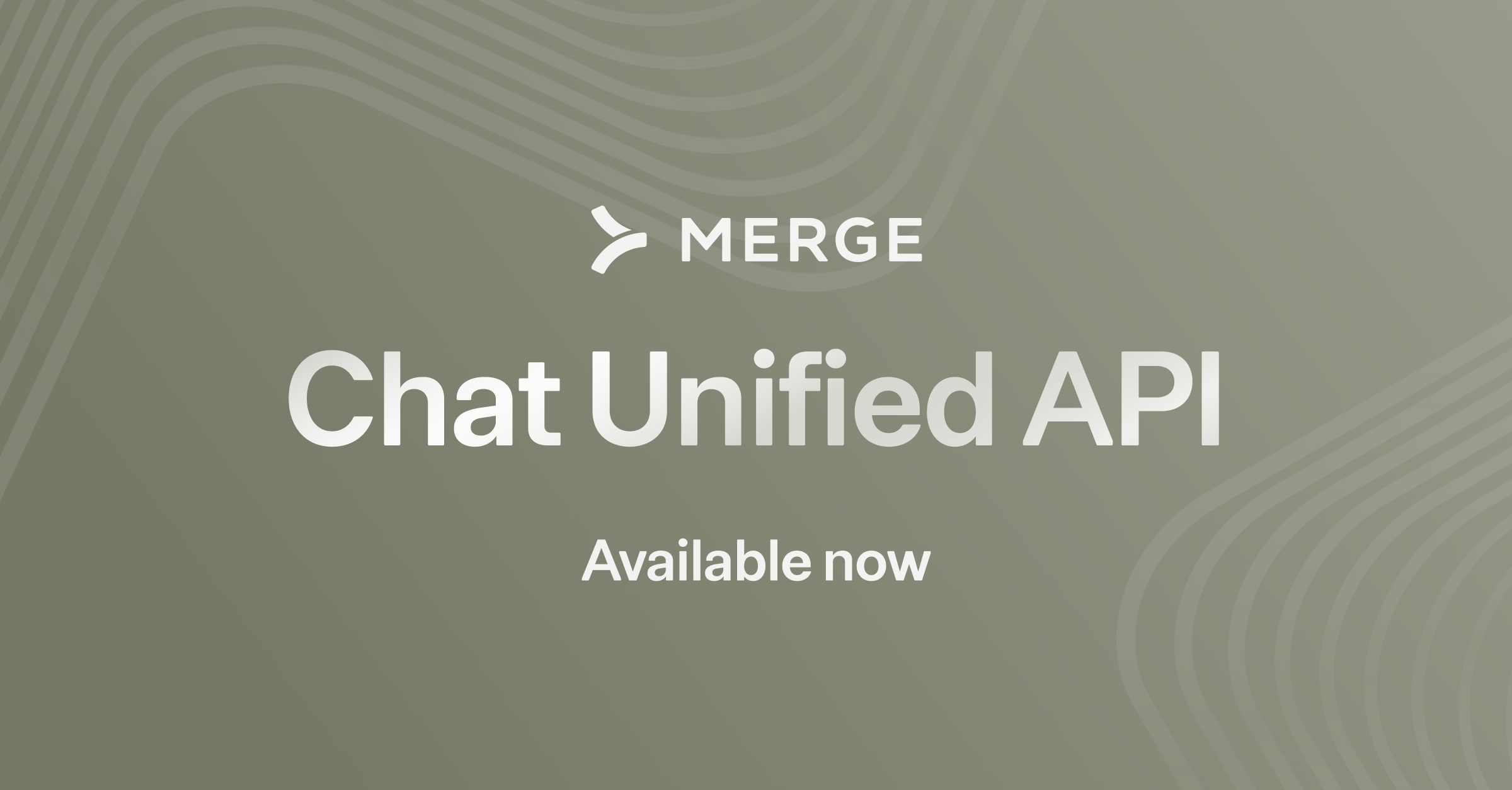Table of contents
7 Finch API alternatives to consider in 2026
.png)
Finch offers a unified API for HRIS and payroll solutions to help you integrate your product with dozens of these applications in a matter of weeks.
Despite its promising value proposition, it may not be the best integration solution for your product(s).
We’ll help you decide whether it is by comparing it directly with your top alternative options.
Merge
Merge is the leading unified API solution and offers unified APIs for several categories, including HRIS, ATS, CRM, file storage, and ticketing.
Top features
- Integration observability: Merge offers a full suite of integration management features for customer-facing teams, including fully-searchable logs, automated issue detection, and a dashboard to monitor integration health and adoption more holistically

- Broad integration coverage: Merge supports 6 categories of integrations—and growing—to help customers avoid relying on multiple integration vendors
- Advanced syncing features: Merge lets you sync any custom data through features like Field Mapping, Authenticated Passthrough Request, and Remote Data
When to choose Merge over Finch
- You aren’t willing to compromise on integration quality. Merge is the leader in the unified API market because they offer the highest quality and quantity of product integrations and the best support. Case in point: Merge has the best leadership position in the G2® Grid for Unified APIs

Finch, meanwhile, is just a “Contender” on this grid. Many Merge customers also call out Finch for having shallow integrations, as shown below.

- You need to integrate with several categories of tools. Merge supports 5 more categories than Finch, making it a better solution for handling all of your long-term integration needs
- You’re prioritizing integration security. Merge is API-first and offers 220+ API-based integrations. Finch, on the other hand, heavily relies on “Assisted Integrations”, which essentially require a member of their team logging into your customers’ applications to retrieve data before normalizing it and adding it to your product

{{this-blog-only-cta}}
Apideck
Apideck offers unified APIs for several categories of software as well as an integration marketplace product.
Top features
- Embedded integration marketplace: You can build a webpage that displays the integrations, individual pages for each integration, a library of the integrations for logged in users, and more to raise awareness and adoption of the integrations you've added through Apideck

- Comprehensive integration offering: Apideck supports 7 categories of integrations, including e-commerce, CRM, HRIS, and file storage
- Webhook support: Apideck lets you leverage webhooks across their integrations to sync data between 3rd-party systems and your product in real-time
When to choose Apideck over Finch
- You want to test the platforms with real data. Finch only offers free testing via their sandboxes. Apideck’s pricing plans, on the other hand, all allow you to test any integrations with production data for free—up until you make 2,500 calls
- You’d like to outsource integration marketplace development. Finch doesn’t provide any support for this while Apideck does
- You need to integrate with a broader range of integrations. If you need to integrate with any categories beyond HRIS and payroll—such as file storage, e-commerce, ticketing, or accounting—Apideck will be a better fit
https://www.merge.dev/blog/apideck-alternatives?blog-related=image
StackOne
StackOne offers unified APIs for several categories of integrations, as well as “AI Agent Actions,” which help facilitate integrations with AI agents.
Top features
- Cross-category integration support: StackOne supports integrations across 11 categories, including learning management software (LMS), databases, and instant messaging

- Available SDKs: StackOne offers SDKs in several languages, from Ruby to Java to Typescript, to help you build to their unified APIs faster and successfully
- AI tools library: StackOne offers tool support for AI agents to enable them to leverage StackOne’s integrations
Related: How the Merge Model Context Protocol (MCP) can support your AI product
When to choose StackOne over Finch
- You need to support several integration categories. StackOne supports several categories that Finch doesn’t, such as marketing software, identity and access management, and LMS
- You’re looking to invest in an integration solution that supports AI products. While Finch may provide some support through their recently-launched MCP server, StackOne’s broad integration support will likely better support your product’s agentic use cases
- You’re prioritizing a European-based integration company. Finch is based in the United States, while StackOne is headquartered in London. This means that if your team and many of your customers are based in Europe, StackOne can provide better support and better alignment with your integration wants and needs (e.g., supporting integrations that are popular in the Europe)
Related: StackOne’s top competitors in 2025
Workato
Workato offers a broad suite of integration products to help you build integrations and workflow automations within your organization and in your product.
Top features
- Workato Agentic: Workato lets you develop and maintain AI agents that work across applications, data, and business processes through its “Workato Agentic” offering

- API connectors: Workato supports thousands of API connectors across software categories, including project management, security and compliance, and machine learning tools
- Workato Academy: Workato provides several courses across skill levels to help users get more comfortable with their products. They also offer certificates if you pass exams, which you can include on your resume and Linkedin profile
When to choose Workato over Finch
- You need to build internal integrations and automations. Finch only supports customer-facing integrations
- You’re looking to invest in a more proven integration solution. While Finch has been around for a while and works with some enterprise companies, Workato has a longer track record of working with enterprise companies. For example, Wrike, OneLogin, and Epicor have all used Workato’s embedded product for several years
- Your developers are already familiar with Workato’s internal integration solution. If this is the case, they’ll likely be able to get onboarded onto Workato's embedded offering relatively quickly
Related: A guide to the top Workato alternatives
Prismatic
Prismatic offers an embedded iPaaS to help you build integrations and workflow automations between your product and your customers’ apps.
Top features
- Integration marketplace: Like Apideck, Prismatic can help you develop and maintain an integration marketplace within your app to help users learn about and try any integration with ease
- Connector support: Prismatic supports connectors in more than 10 software categories, including AI, ERP, analytics, and collaboration and productivity
- Integration management: Prismatic offers tooling to help you support integrations, such as an overview on the apps that are connected, the recent requests and responses that have transpired, and the users at a given account

Related: Prismatic alternatives in 2025
When to choose Prismatic over Finch
- You need to integrate with a wide range of integrations. Prismatic lets you integrate with more categories of applications, from CRM to accounting to e-signature apps
- You’re looking to provide an integration marketplace. As mentioned before, Finch doesn’t support this product
- You don’t want to be constrained on any plan. Finch only lets you offer 24 integrations on their “Starter” plan, while Prismatic’s pricing plans all allow you to build unlimited integrations
Tray.ai
Traiy.ai offers a variety of integration, automation, and AI solutions—including an embedded iPaaS, a traditional iPaaS, an AI agent builder, and an API management platform.
Top features
- Merlin Agent Builder: Design, deploy, and manage AI agents that work across predefined internal applications, workflows, and teams
- Pre-built connectors: Offers hundreds of integrations across 10 software categories, which include support platforms, accounting solutions, marketing tools, and more
- Merlin Intelligence: Provides AI-powered guidance on building integrations and automations and can even build integrations and automations from scratch via natural language

When to choose Tray.ai over Finch
- You want to leverage a more AI-forward integration solution. While some of Tray.ai’s AI solutions aren’t yet available for their embedded offering, they likely will be soon
- You need to build integrations across a range of software platforms. Tray.ai supports numerous integration categories while Finch is solely focused on HR and payroll
- You’d prefer a solution that has a better track record of enterprise adoption. Tray.ai’s embedded solution is used successfully by more well-known brands across industries, like Eventbrite, HackerOne, Zendesk, and Typeform
Related: A guide to Tray.ai alternatives
Kombo
Kombo offers unified APIs for HRIS, payroll, and ATS.
Top features
- Comprehensive integration support: Their unified APIs support more than 100 integrations, many of which are popular among European companies
- Automated issue detection: Their logs for failed requests include detailed insights on why they failed—allowing their customers to troubleshoot issues faster with their own clients

- Scopes configuration: You can decide which fields to sync from a given integration to follow the principle of data minimization effectively
When to choose Kombo over Finch
- You need to focus on integrations that are popular in Europe. Kombo offers many integrations that are more popular in Europe than Finch, such as Teamtailor, Lucca, and HaileyHR
- You want to invest in a more ambitious integration vendor. Despite being newer to the market (Kombo was founded in 2022; Finch was founded in 2020), Kombo already supports more categories and is catching up on the number of supported integrations
- You’d like to offer ATS integrations. Finch doesn’t support this category, while Kombo does
{{this-blog-only-cta}}







.png)

